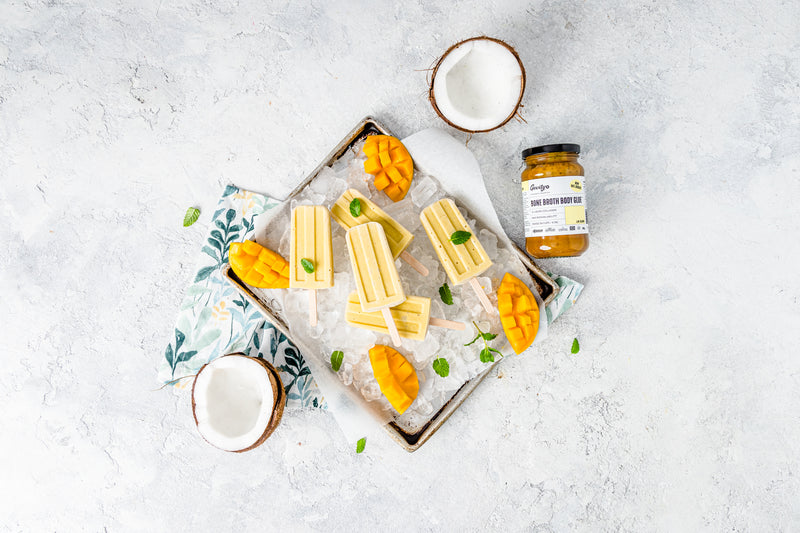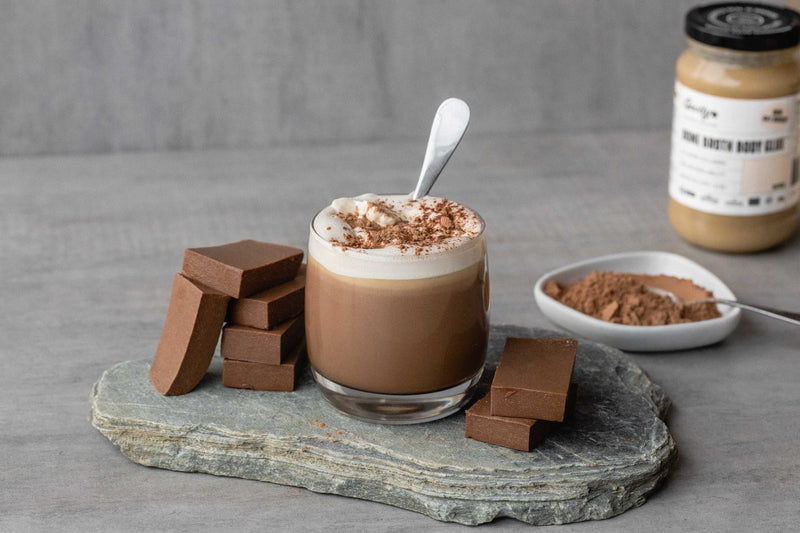While it may be easier said than done right now, it is important for us all to try to stay calm throughout this crazy storm and remember how damaging stress is to the microbiome. The gut-brain connection is no joke. These two are closely connected and in constant communication - you will struggle to fix your gut if you’re not also putting focus on your mind and emotions.
Gut distress = brain stress
Brain stress = gut distress
For example, the very thought of eating can release the stomach's juices before food gets there. This connection goes both ways. A troubled intestine can send signals to the brain, just as a troubled brain can send signals to the gut. Therefore, a person's stomach or intestinal distress can be either the cause or the result of anxiety, stress or depression.

"I know this cycle all too well having spent years doing “all the right things” when it came to healing but never seeing lasting improvement. When I learned to control how much stress affected me and how to get out of flight or fight, I finally began to see results in my physical health - gut issues, allergies and my immune function, all reaping the benefits. Below are my own personal must-dos to manage stress and ensure my gut and immune system function properly. Don’t get overwhelmed by this list! You can pick just one thing to incorporate and start there. Plus many of these can be stacked together - eg practice deep breathing while meditating or while journaling gratitude. The last one is my favourite (of course) but they are all valuable if you are dealing with even an average amount of stress to maintain optimal gut and immune function. Stress on your body - be it mental or physical takes valuable energy from where you need it most right now - your immune system." -Atlanta
SIMPLE HACKS TO BETTER MANAGE STRESS
Although stress is a normal part of life and impossible to avoid right now, there is good news. You can manage your stress so that it reduces its impact on your stomach and immune system. Here are 5 simple hacks we use in our household to help you reduce stress AND the related tummy troubles.
Breathing
Take short breaks and 10 deep diaphragmatic breaths. When done right this can really help calm you and your nervous system. Every few hours, stop what you’re doing and focus for just a minute, on slow, quiet, deep breathing. Your breathing should be very slow, silent, and through your nose. Practice this before eating too. Note - diaphragmatic breathing, in really simple terms, is when you breathe all the way to your stomach and extend out as far as is comfortable rather than pulling your stomach in with each breath. There are plenty of tutorials online - just google “diaphragmatic breathing”.
Exercise
Hands down one of the best ways to manage stress and maintain healthy digestion. Physical activity also relieves tension and stimulates the release of chemicals in your brain called endorphins, which act as natural painkillers. Endorphins improve sleep, which can help relieve stress, which is obviously great! Just remember to not overdo it. Too much exercise can actually cause stress to the body that negatively affects digestion and gut health. General rules are: keep it short and sharp and concentrate on nasal breathing whenever possible.
Meditation
There are many meditation techniques that can help you focus your mind on an object, activity, or thought to help you achieve calmness. Although the goal of meditation is not stress reduction, that is a side effect of this ancient practice. Don’t get caught up in the whole “think of nothing / silence your mind” thing which is unobtainable for most. Instead just try deep breathing in silence for just a few minutes each day. If you’re a techy check out one of the many apps available to get the habit started like headspace or waking up.
Gratitude
A daily gratitude practice is more important than ever right now. No need to make things hard or rush out to buy a special journal. Find 3 things to be grateful for each evening, write it down, simple. Or involve the family and have everyone take turns to say out loud what they are grateful for before dinner. FYI - it's impossible to frown and be grateful at the same time!
Food Choices
As this is an obvious one it can sometimes not be as valued as mindfulness or gratitude. Low inflammatory foods are a must to consume when trying to stay zen. Foods that contain gluten or processed dairy for example, create an inflammatory response in the gut. And as we just learned - inflamed gut, inflamed mind. On the other hand there are certain foods that have been shown to reduce anxiety. Salmon contains omega-3 fatty acids, which are natural mood boosters. Almonds are chock full of magnesium, a mineral that helps manage cortisol levels. And cacao, no explanation needed.
Then of course there is Bone Broth Body Glue (Mark first nicknamed this “Atlanta's Body Glue” after it literally “glued” my gut back together). It’s a low inflammatory, stress reducing, gut-hug-in-a-mug with 10 x more collagen forming amino acids compared to traditional bone broths, and no meat or veg in the mix to cause added stress to the digestion.
My ultimate stress stack? Pour a cup of your fav Body Glue (I’m totally loving Populate right now) - stop what you are doing while you drink it, savour each sip, practice some gratitude, breathe deep and feel the healing goodness flow through you.
Shop the Gevity Rx range today - feel free to email us at info@gevityrx.com if you have any questions.




